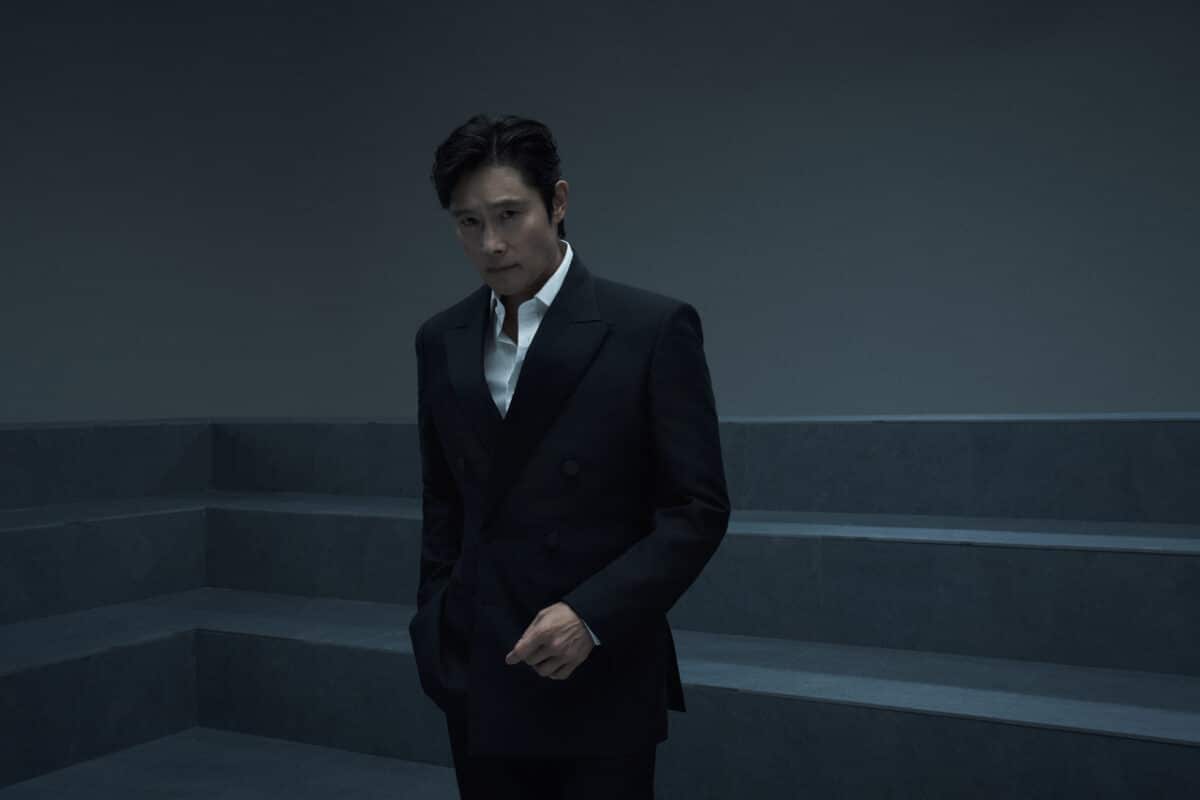

Lee Byung-hun in a promo photo for “Squid Game” season 2. Image: Netflix Korea
A household name in Korea with a career spanning 34 years, Lee Byung-hun returns to the screen as the enigmatic villain in season two of Netflix’s global hit “Squid Game.” Having made a tantalizing cameo in the show’s inaugural season, Lee now commands center stage as the complex mastermind known as Frontman.
The acclaimed actor — whose filmography boasts iconic hits such as “Inside Men” and “Mr. Sunshine” — tackles the intricate layers of Frontman, a character whose chilling authority conceals a convoluted past.
Season one left viewers speculating about his identity, but the second installment peels back the curtain to reveal the man behind the mask: Hwang In-ho, a former champion of the deadly games himself.
For Lee, embodying Frontman was a psychological marathon. Beyond his duties as the malevolent architect, in the new season, Frontman assumes the alias Young-il to infiltrate the competition alongside Ki-hun (played by Lee Jung-jae), who returns determined to stop the games.
In a recent interview, Lee revealed that the greatest challenge in portraying Frontman was navigating the complexity of the character’s three identities: Young-il, Hwang In-ho, and Frontman.
Article continues after this advertisement
“Viewers know about Frontman, but they don’t know about Hwang In-ho,” Lee shared during a group interview in Samcheong-dong, Seoul, Wednesday.
Article continues after this advertisement
“On top of that, I had to hide my identity and act as Young-il in front of the new game participants. I felt that all three of these characters had to coexist within me. It was a continuous process of shifting between these personas in each scene,” said Lee.
When asked about the most grueling moment in portraying the Frontman, Lee pointed to the scene involving the mingle game, where participants had to form groups based on a randomly assigned number and race to a room before time expired.
“The most difficult scene was during the (mingle) game, where I killed a participant right in front of Jung-bae. In that scene, I felt that Front Man, Hwang In-ho, and Oh Young-il had to shift back and forth within a split second. Expressing those subtle differences was the hardest part,” he said.
In dissecting Frontman’s overarching strategy, Lee noted that his character assumes a detached omnipresence, a figure pulling strings from the shadows.
“Frontman is someone who looks down from above. In the game, he watched Ki-hun closely from right beside him with that very perspective. He anticipated what Ki-hun would think and how he would act, even driving him into desperate situations while playing alongside him,” he said.
Lee’s masterful portrayal of a layered character follows his international career. A pioneer among Korean actors making their mark in Hollywood, Lee debuted on the global stage with the 2009 blockbuster “G.I. Joe: The Rise of Cobra.” Since then, he’s shared screen time with cinematic heavyweights in “G.I. Joe: Retaliation,” “Terminator Genisys,” “Misconduct” and “The Magnificent Seven.”
His trajectory seemed destined for Hollywood stardom, yet an unexpected twist has emerged, positioning Lee at the center of an entirely different wave of recognition.
Despite his notable Hollywood credentials, Lee confessed that it is through his role in the cultural phenomenon “Squid Game” that his international fame has skyrocketed.
“I’ve experienced Hollywood blockbusters a few times, but being welcomed overseas for performing in Korean while acting alongside Korean colleagues feels completely different,” he said. “It’s ironic yet deeply moving that I’m receiving more recognition for Korean works than for Hollywood films,” he added.
“As an actor, I always thought the ideal life would be to be somewhat known wherever I am. After filming ‘G.I. Joe,’ I thought, ‘From now on, I’m far from having a moderately famous life; I’ll become very famous.’ I thought that a few times after, but when I went overseas, no one recognized me,” Lee laughed.
“But this time, it feels real. I feel like I’ll live as a well-known person for the time being,” he said.











